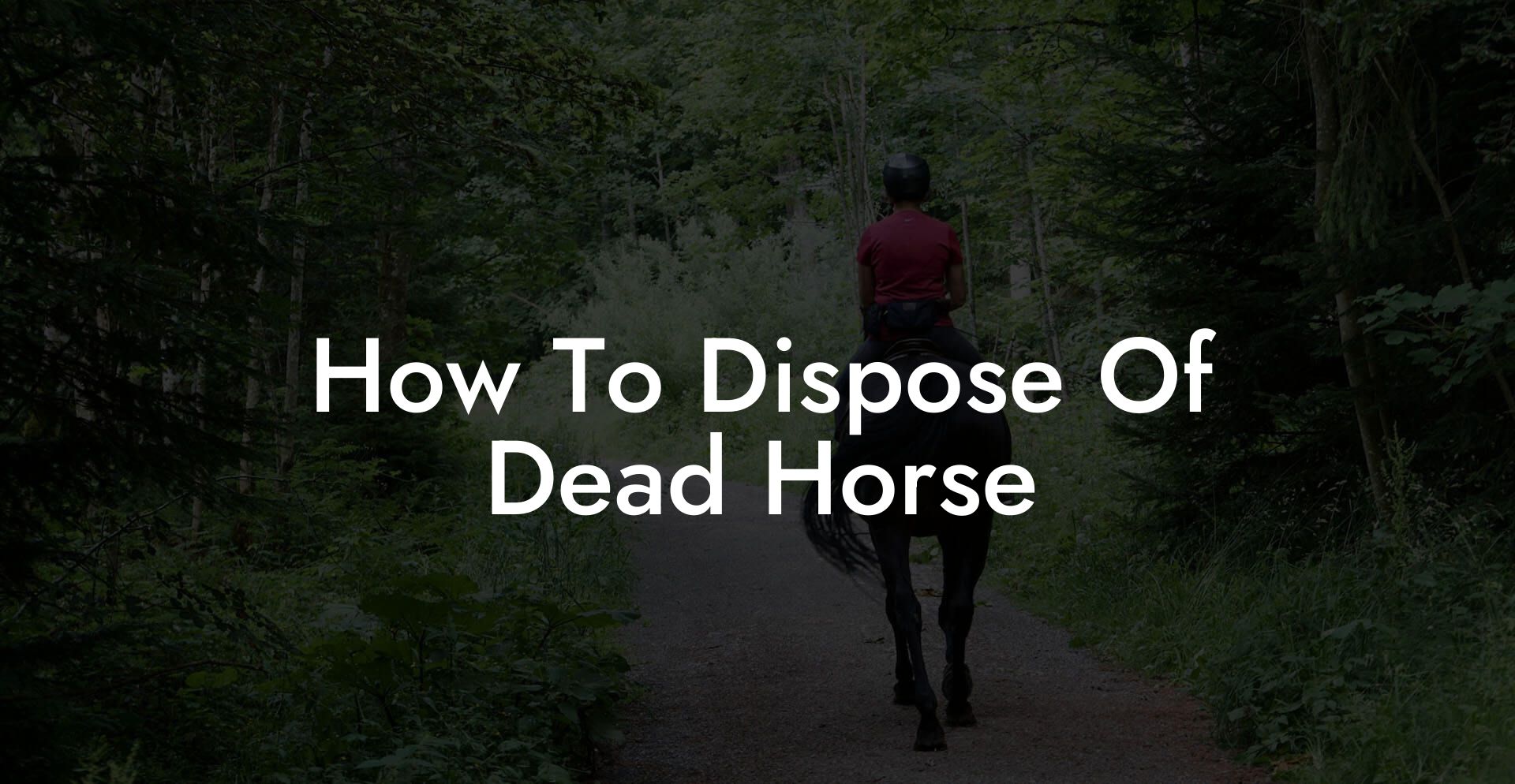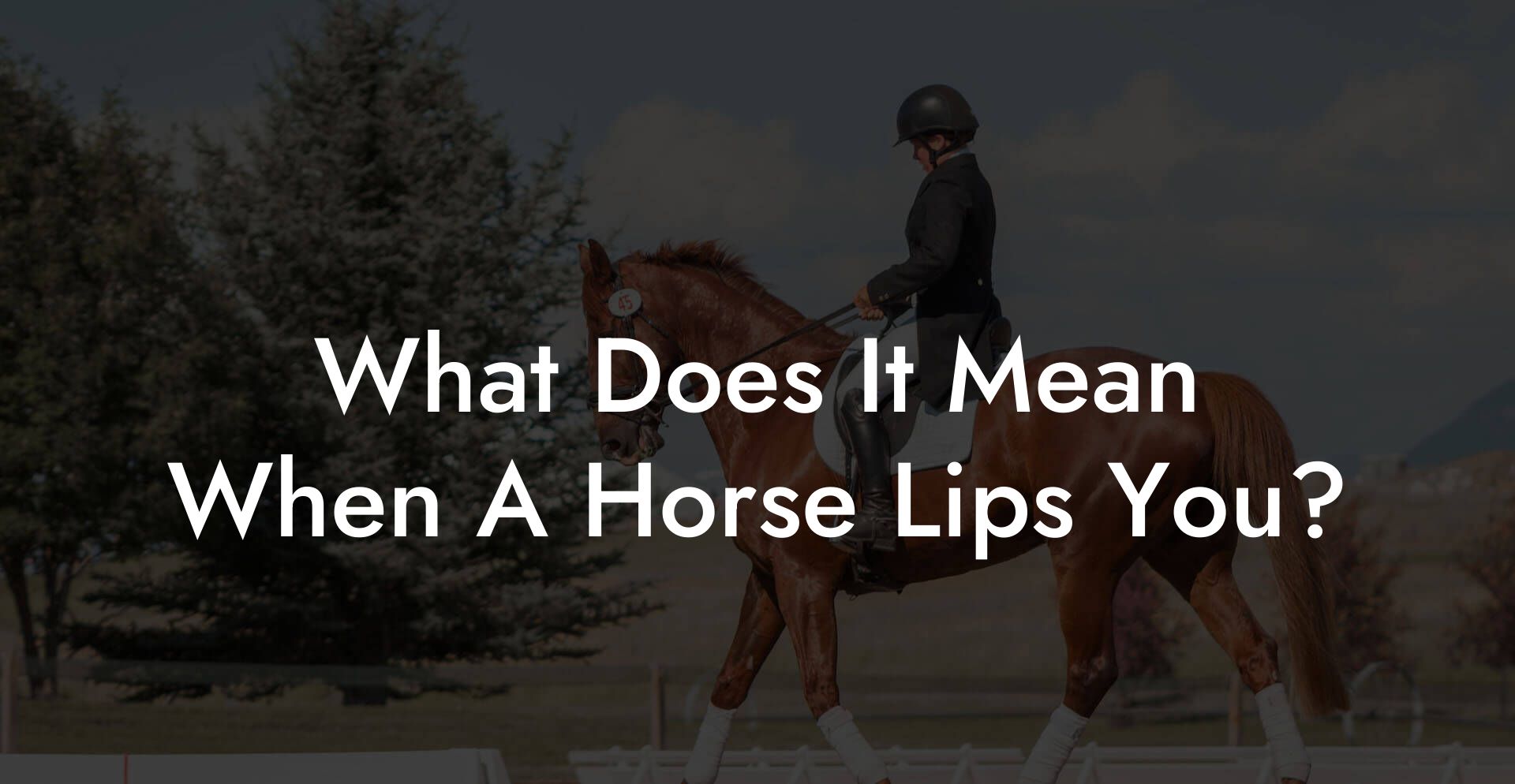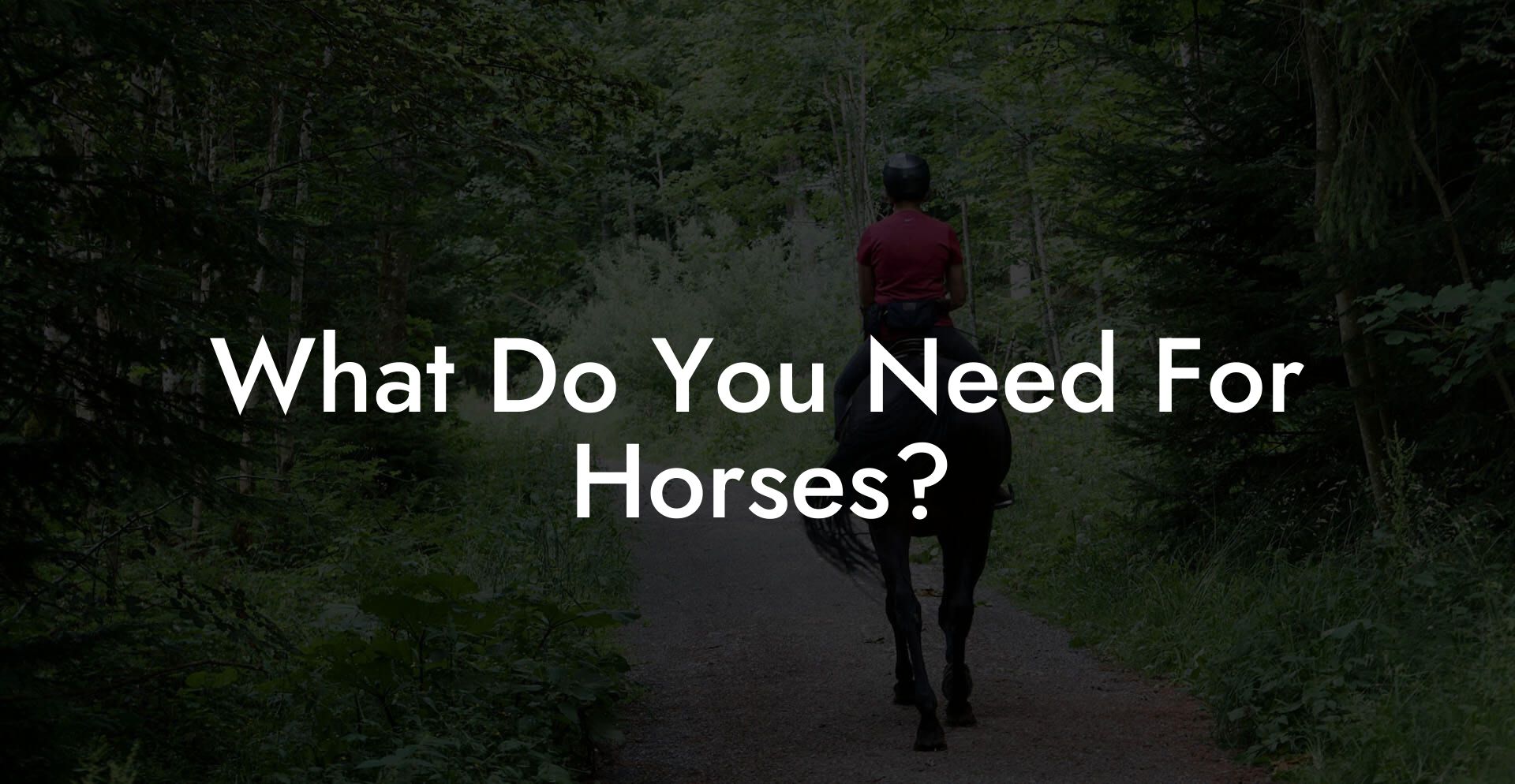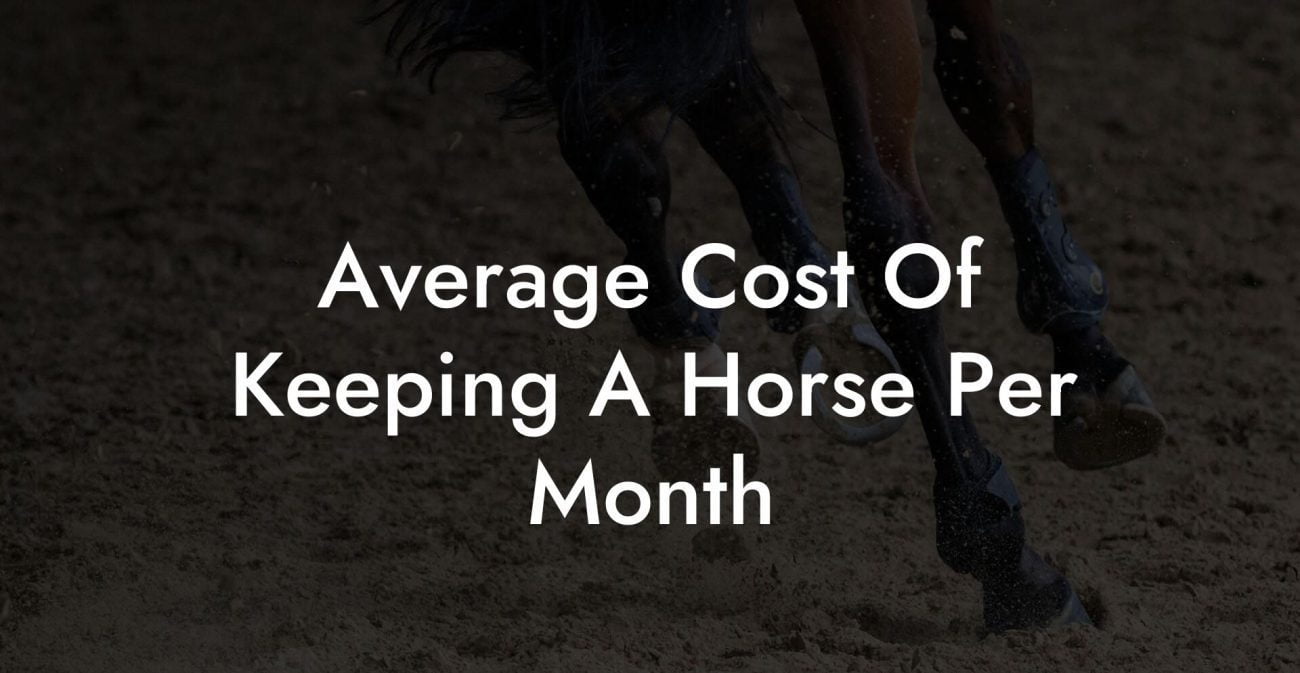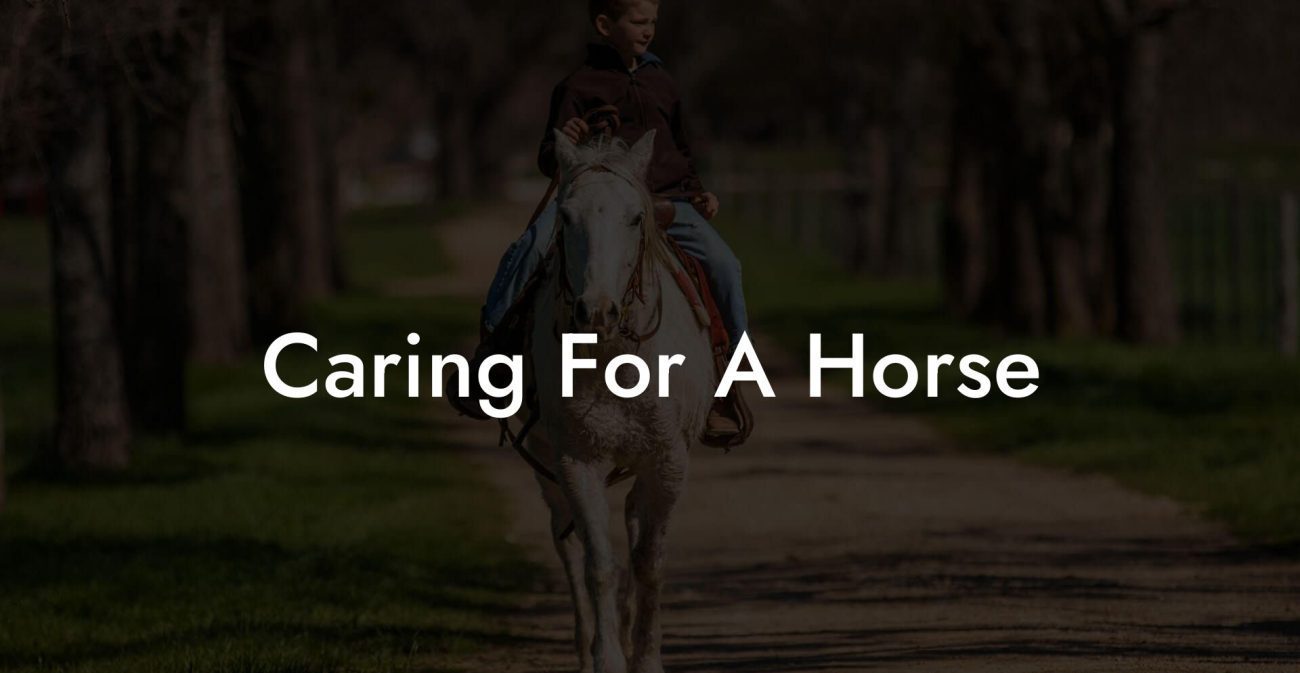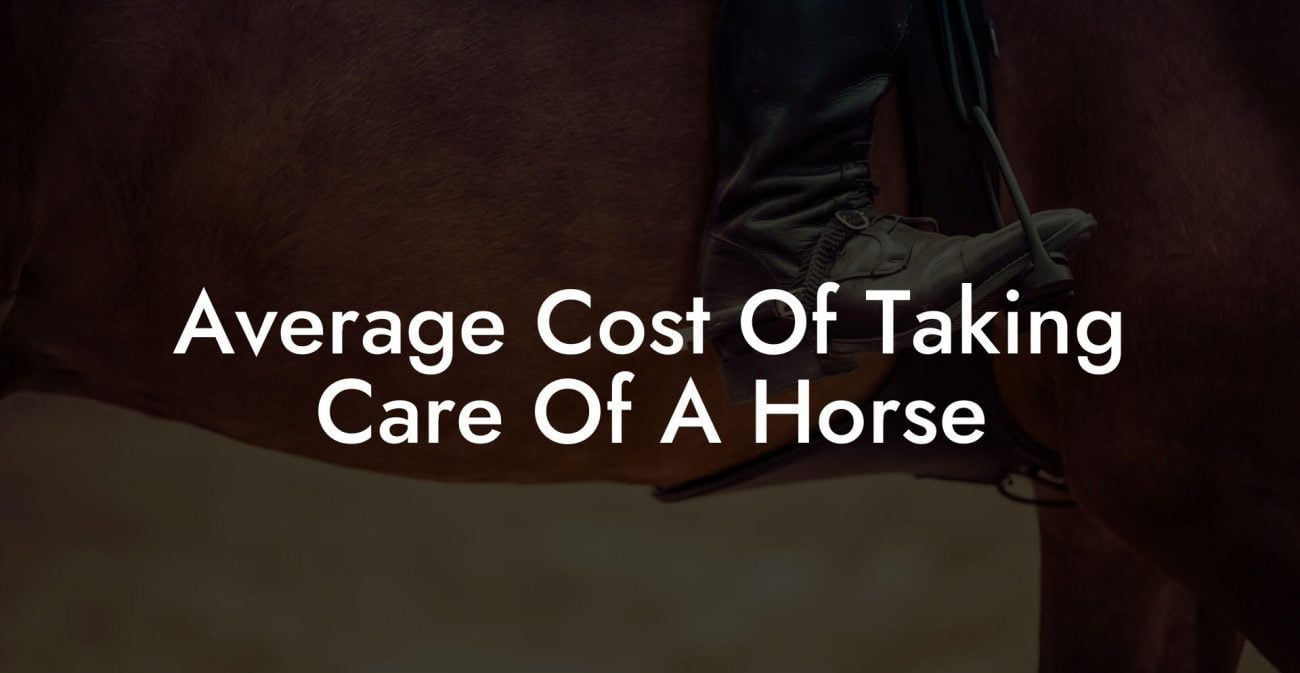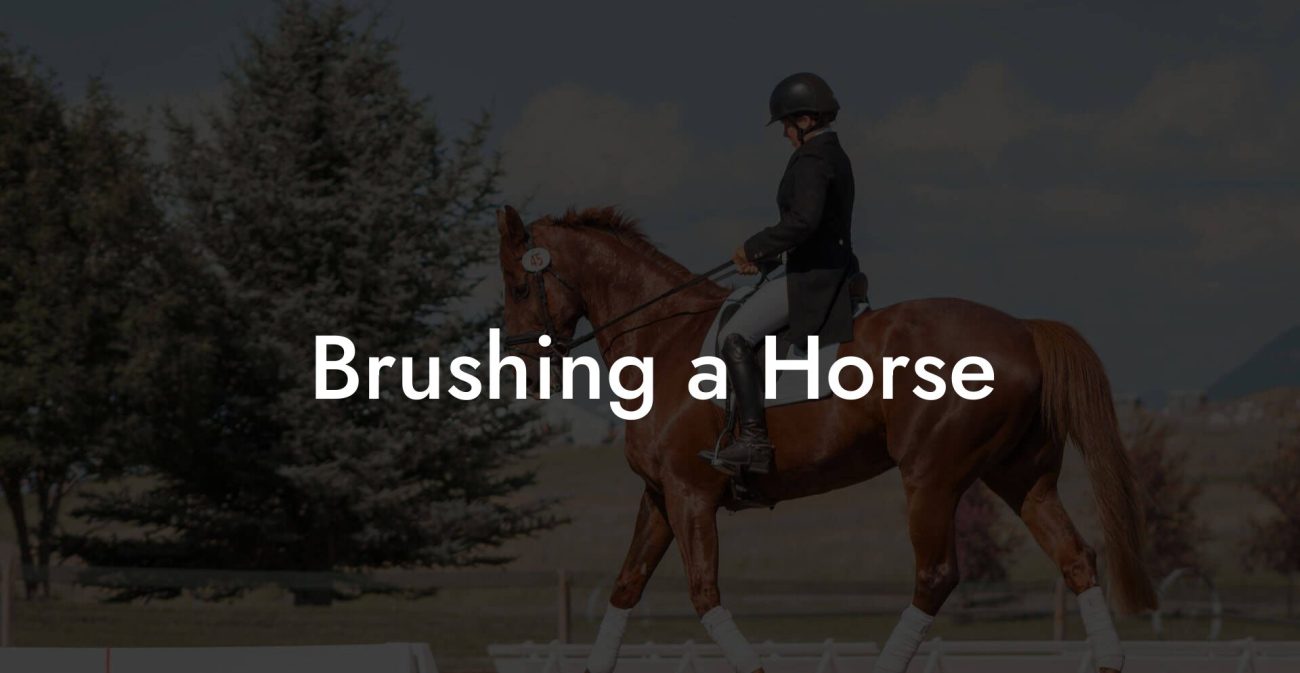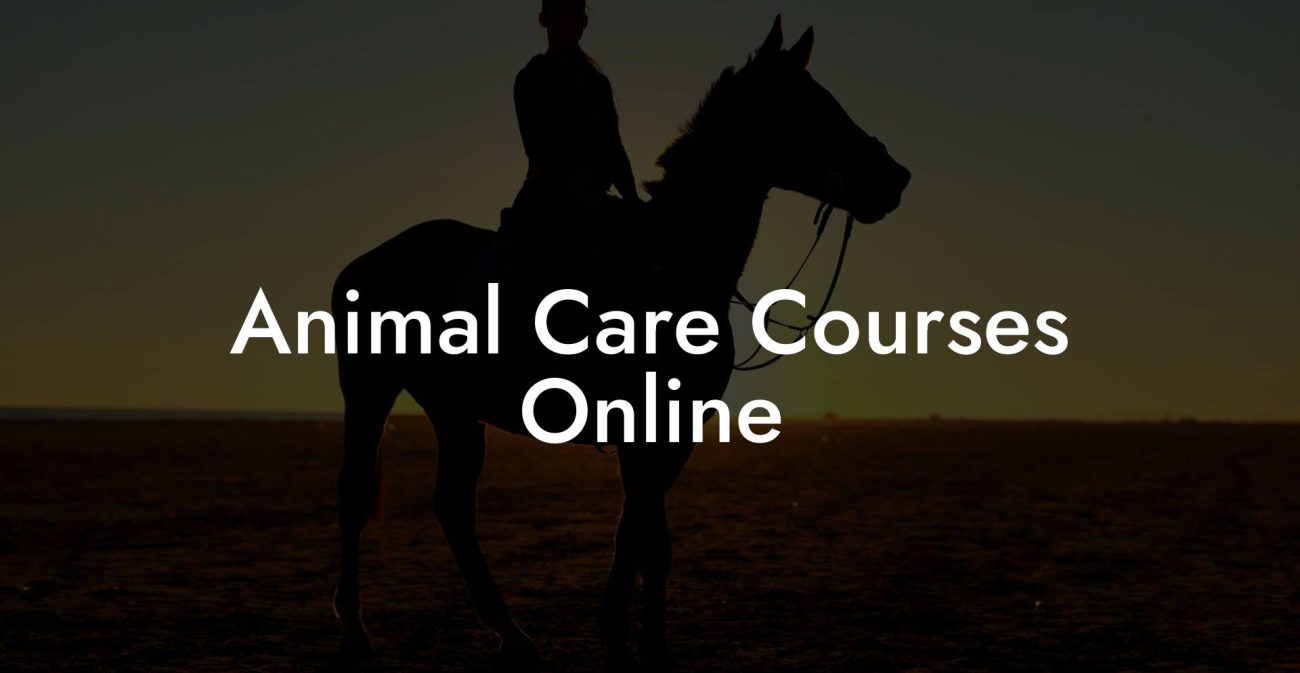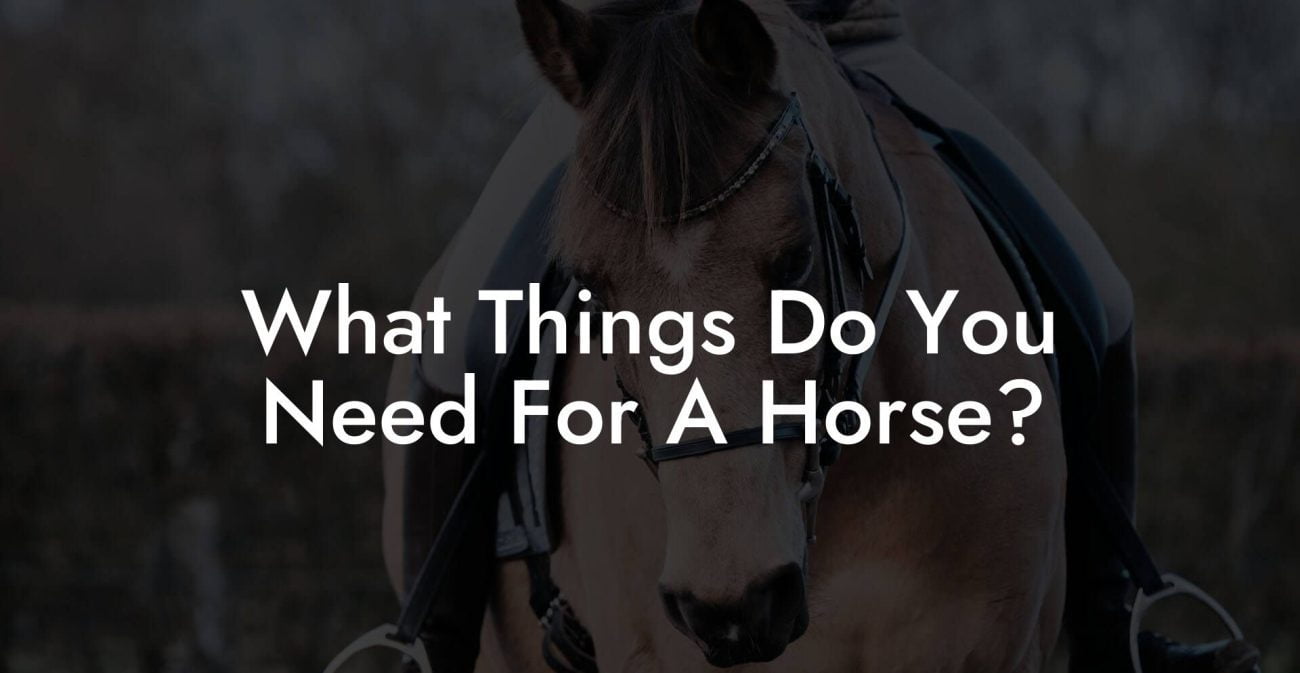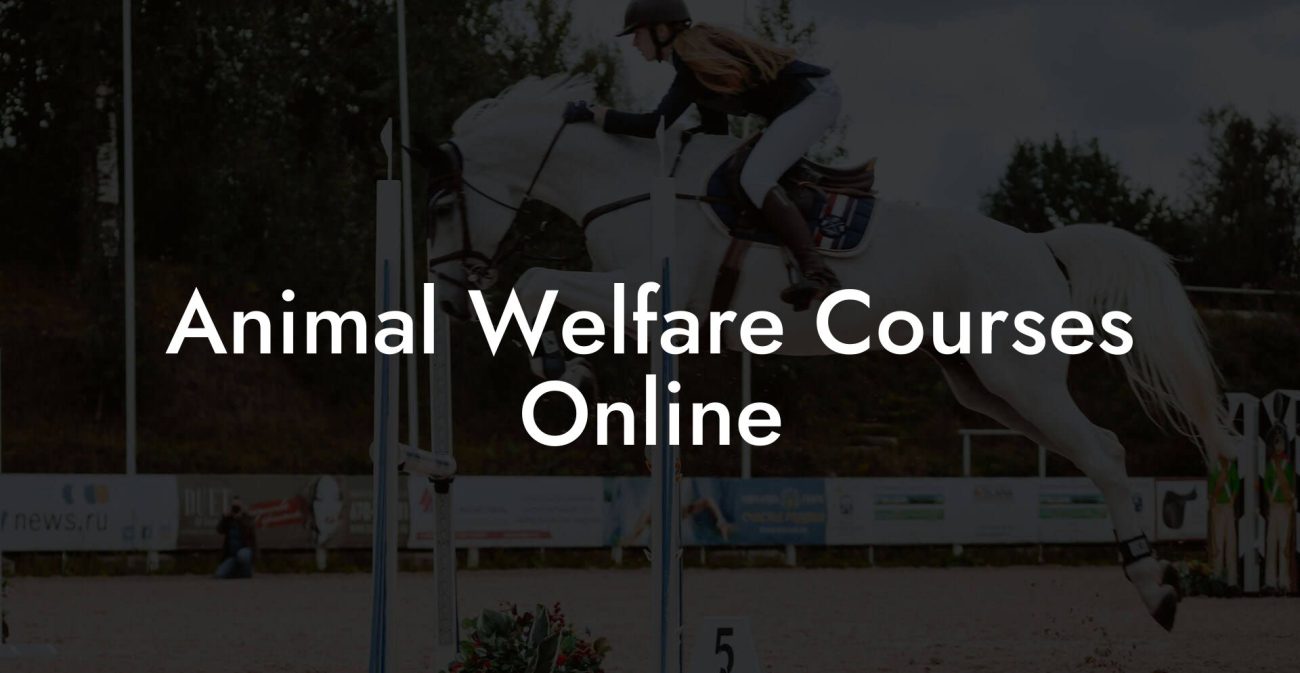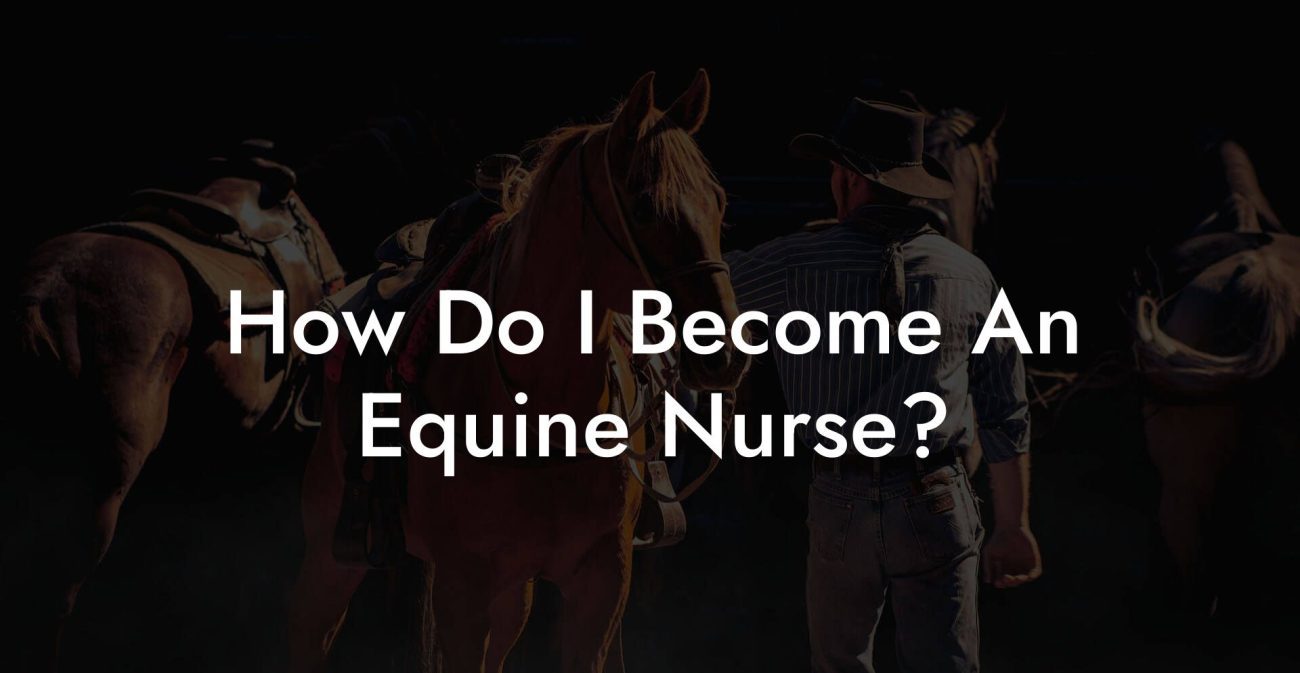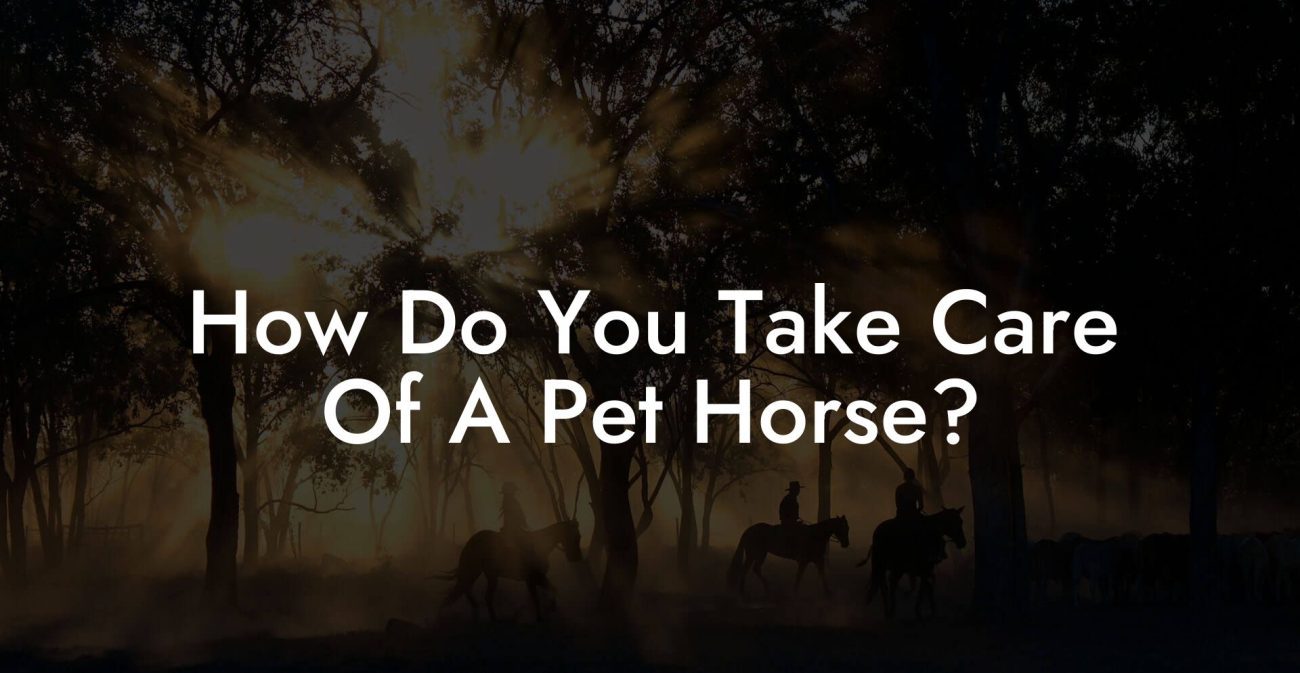When life goes off the rails, quite literally, and you find yourself facing the unspeakable task of disposing of your dearly departed equine companion, it’s easy to feel overwhelmed. Whether you experienced a tragic accident, an illness, or simply the end of a long and meaningful life, handling a dead horse is no walk in the pasture. In this guide, we’re diving into the nitty-gritty details of how to dispose of a dead horse, delivering a blend of practical advice, legal insights, and a touch of humor to ease the sting of loss. So saddle up as we explore respectful and responsible ways to handle a situation that no horse lover ever really wants to face.
Quick Links to Useful Sections
- Understanding Why Proper Disposal Matters
- Decoding Your Options: Methods for Disposing of a Dead Horse
- Direct Burial: Returning to Earth
- Rendering and Incineration: Industrial but Effective
- Composting: A Green, Sustainable Approach
- Donation to Scientific Research or Educational Purposes
- Legal and Regulatory Considerations: Staying on the Right Side of the Law
- A Practical Step-by-Step Guide: How to Dispose of a Dead Horse
- Step 1: Assess the Situation and Confirm the Death
- Step 2: Contact Your Veterinarian
- Step 3: Evaluate Your Disposal Options
- Step 4: Gather the Necessary Permits and Documentation
- Step 5: Prepare the Site or Arrange for Transportation
- Step 6: Execute the Disposal with Care and Dignity
- Step 7: Record and Reflect
- Understanding the Environmental and Sustainable Implications
- Direct Burial and Its Impact on the Ecosystem
- Rendering: Turning Tragedy into Resourcefulness
- Composting as an Eco-Friendly Alternative
- Cost Considerations: Balancing Budget and Compassion
- Coping with Loss: The Emotional Journey Behind Disposal Decisions
- Resources and Community Support: Your Next Steps
- Veterinary Support and Consultation
- Local Agricultural Extension Offices
- Animal Welfare Organizations
- Counseling and Support Groups
- Online Communities and Forums
- FAQs on Dead Horse Disposal
- Embracing the Circle of Life: From Loss to Renewal
- Your Journey Forward: Compassion, Compliance, and the Care of Tomorrow’s Horses
Understanding Why Proper Disposal Matters
At first glance, the disposal of a dead horse might seem like a morbid afterthought. However, the process is crucial for a range of reasons, from public health and environmental impact to legal compliance and ethical considerations. Dead animals that are not disposed of properly can lead to the spread of disease, infestations by pests, and even water contamination. Moreover, there's a profound respect owed to an animal that was once a vibrant part of your life. Handling the situation with proper planning reaffirms your commitment to the care and respect you have always shown your horse.
In today’s world, where Gen-Z and millennial enthusiasts are reshaping traditional narratives with fresh perspectives, you can turn this difficult moment into an opportunity to educate, advocate for sustainable practices, and even spark community discussions about animal welfare. By laying out the complexities, methods, and potential outcomes of dead horse disposal, you’ll be better prepared to navigate this challenging process while honoring your companion in a way that feels honest, eco-friendly, and legal.
Let’s be real: the topic isn’t glamorous, but it’s essential. With the right blend of empathy, thorough research, and compliance with local regulations, you’re not only safeguarding public health and the environment but also preserving the dignity of your beloved friend. And if a little humor can help ease the heaviness of the topic, consider it our way of tipping our hat to both the absurdity and gravity of life’s turning points.
Decoding Your Options: Methods for Disposing of a Dead Horse
When it comes to disposing of a dead horse, there isn’t a one-size-fits-all solution. The method you choose often depends on local laws, personal beliefs, available resources, and environmental considerations. Here, we’ll walk you through several viable options, each with its own advantages and challenges.
Direct Burial: Returning to Earth
Direct burial is one traditional method that many find emotionally satisfying. Burying your horse in a designated area on your property can feel like a final tribute, a natural return to the cycle of life. However, there are strict guidelines that must be followed:
- Permits and Regulations: Before digging a grave, consult your local authorities. Many regions have zoning laws and environmental regulations to prevent groundwater contamination and the spread of disease.
- Location: Choose a site away from water sources, preferably after a soil test. This ensures that decomposition does not negatively impact the surrounding ecosystem.
- Depth and Lining: The grave typically needs to be at least 4 to 6 feet deep, and in certain areas, you might be required to use a concrete liner or another form of containment to secure the carcass.
Although direct burial is often the most cost-effective method, it can be emotionally taxing and logistically challenging if you’re not familiar with local disposal laws.
Rendering and Incineration: Industrial but Effective
For those who prefer a more streamlined, industrial solution, rendering and incineration are popular choices. Rendering converts animal carcasses into usable byproducts, such as protein meals or fats, while incineration reduces the body to ash. Here’s what you need to know:
- Rendering Facilities: These specialized plants process dead animals at high temperatures. They’re equipped to handle large carcasses safely and offer a way to repurpose animal byproducts, though the process itself might not be the most heartwarming option.
- Incineration: This method is efficient and drastically reduces the volume of waste. However, it is energy-intensive and can produce emissions, which means environmental compliance is key.
- Costs and Arrangements: Both rendering and incineration services might come with fees that vary based on location and the specific provider. It’s worth shopping around and asking for recommendations from local veterinarians or agricultural extension services.
These methods are especially useful in densely populated areas where personal burial might not be an option. Although they lack the personal touch of direct burial, they often adhere strictly to health and environmental standards.
Composting: A Green, Sustainable Approach
Composting a dead horse is an emerging method that aligns closely with sustainable practices. Much like natural burial, composting allows the body to decompose while enriching the soil, if done correctly. Here’s how it works:
- Process Overview: Thoroughly carcasses are broken down by a combination of microbes, heat, and oxygen. When managed properly, this process can produce nutrient-rich compost that benefits your land.
- Requirements: Composting requires a controlled environment, proper aeration, and the right balance of carbon-rich materials to ensure the process is efficient. You may need to construct a special composting facility or hire professionals who specialize in animal carcass composting.
- Environmental Benefits: This method minimizes chemical use and is an eco-friendly alternative to incineration. However, it’s crucial to ensure that the composting process meets regulatory standards so that no pathogens or toxins affect the soil.
Although not as widely available or as straightforward as other methods, composting embodies an innovative, earth-friendly alternative that resonates with many younger, eco-conscious horse owners.
Donation to Scientific Research or Educational Purposes
In some cases, your horse’s body could serve a second life through scientific research or educational programs. Universities, research institutions, or specialized veterinary schools might be interested in using equine cadavers to study anatomy, pathology, or new treatment methods. This option offers the dual benefit of respectful disposal and contributing to the advancement of veterinary science and animal care.
Donation programs vary widely by region, and it’s essential to coordinate with the relevant institutions well in advance. While this option is less common and might not be available everywhere, it’s worth exploring if you’re looking to turn a somber situation into something that could help future generations of animals and caregivers.
Legal and Regulatory Considerations: Staying on the Right Side of the Law
No matter which disposal method you choose, one thing is clear: following the law is non-negotiable. Each region and jurisdiction will have its own set of rules and regulations designed to protect public health and the environment. Ignorance of these laws is not an excuse, so here are some key points to consider:
- Permits and Notifications: Several disposal methods, particularly direct burial and composting, require permits from local health departments or environmental agencies. Before you take any action, contact the appropriate local authorities to understand the requirements.
- Transportation Regulations: If you need to move the carcass from one location to another (for instance, to a rendering facility or composting site), there may be additional transportation permits or biosecurity measures that must be followed.
- Record Keeping: Document all steps taken during the disposal process. Not only is this useful in case of any legal inquiries, but it also helps provide a clear record for future reference should similar circumstances arise.
- Environmental Laws: Compliance with environmental laws is vital, particularly if the disposal method involves land application or incineration. Ensure that the procedure you choose does not put local water sources or public health at risk. Local state or provincial regulations on animal carcass disposal should always be reviewed.
Navigating these legal complexities can be daunting, so don’t hesitate to consult with professionals such as veterinarians, agricultural extension agents, or even legal experts who specialize in environmental law. Doing so not only protects you legally but also ensures that the disposal of your horse is carried out in a manner that’s socially responsible and safe for the community.
A Practical Step-by-Step Guide: How to Dispose of a Dead Horse
Now that you’re familiar with your options and the legal framework, it’s time to break down the process into a manageable, step-by-step guide. Following these detailed instructions can help ease the burden of making such a tough decision while ensuring that you cover all necessary bases.
Step 1: Assess the Situation and Confirm the Death
The first step, albeit a difficult one, is to confirm that your horse has indeed passed away. Ensure that there is no possibility of recovery by consulting your veterinarian. This step is both emotionally and practically significant, as it sets the stage for all subsequent actions.
Step 2: Contact Your Veterinarian
Your veterinarian isn’t just a figure from your past riding adventures, they play a crucial role in the next steps. They can help confirm the death, offer practical advice on how to handle the situation, and sometimes even help arrange for transportation if you decide to use a professional disposal service.
Step 3: Evaluate Your Disposal Options
Based on your research and the guidelines outlined above, decide which method feels most appropriate for you. Consider factors such as:
- Financial Cost: Some methods require more financial investment than others. For instance, professional rendering might be more affordable than building a proper composting facility.
- Emotional Impact: A direct burial might be too personal for some, while others might find solace in a method that allows the carcass to contribute to scientific research.
- Legal and Environmental Compliance: Ensure that the method you choose aligns with both local laws and environmental best practices.
Step 4: Gather the Necessary Permits and Documentation
Once you’ve chosen a disposal method, your next step is to ensure all legal requirements are met. This might involve obtaining permits for burial or transportation, notifying local health departments, or filling out documentation required by a rendering facility. Detailed planning at this stage prevents complications down the line.
Step 5: Prepare the Site or Arrange for Transportation
Whether you are opting for a direct burial or composting at home, preparation is key. For a direct burial, identify the burial site, arrange any necessary equipment (like a backhoe for deep digging), and prepare the area by marking boundaries that meet regulatory standards. If you’re using a professional service, coordinate a pickup time and ensure that the path from your stable to the pickup location is accessible.
Step 6: Execute the Disposal with Care and Dignity
With everything in place, carry out the disposal process. If you are handling it personally, ensure that you follow safety protocols such as wearing protective gear, using proper tools, and, if needed, having a trusted friend or family member assist you. If you’re using a service, be present (if it helps you find closure) to oversee the process and ask any last questions about the method being used.
Step 7: Record and Reflect
After the disposal, document the process. Keep any permits, receipts, or photos that are important to you as part of your final goodbye. Reflecting on the process, whether through journaling or talking with supportive friends or professionals, can help in the healing process. This step not only validates your efforts to care for your horse even after its passing but also serves as a guide if you ever find yourself needing to navigate this process again.
While no checklist can fully mitigate the emotional weight of parting with a cherished animal, following a structured plan ensures that every legal, environmental, and safety precaution is adhered to. This systematic approach minimizes extra stress during a challenging time and provides a measured pathway to honor the life of your horse.
Understanding the Environmental and Sustainable Implications
Every disposal method has environmental implications, and being environmentally conscious is integral to today’s approach to all aspects of life, even the difficult ones. Whether you are leaning towards direct burial, rendering, or composting, understanding how each method interacts with nature can help you choose an option that aligns with your values:
Direct Burial and Its Impact on the Ecosystem
Direct burial returns a deceased animal naturally to the soil, facilitating a process of decomposition that recycles nutrients back into the earth. However, if not done properly, there’s a risk of contaminating groundwater or affecting local flora and fauna. Adhering to depth guidelines and choosing a location away from water sources minimizes these risks.
Rendering: Turning Tragedy into Resourcefulness
The rendering process transforms a dead horse into useful byproducts such as proteins, fats, and other materials that may eventually find their way into products ranging from pet food to industrial lubricants. While this method is resourceful and industrially necessary, be aware that rendering facilities must comply with strict emissions and waste disposal guidelines to mitigate environmental harm.
Composting as an Eco-Friendly Alternative
For those who pride themselves on their sustainability credentials, composting offers a green approach to disposing of a dead horse. When managed correctly, the composting process can yield rich, organic material that benefits plant life and reduces reliance on chemical fertilizers. It represents the ultimate “closed-loop” system, turning loss into nourishment. However, careful management is key to avoid unpleasant odors or microbial contamination.
Regardless of the method chosen, a thoughtful approach to disposal not only honors your horse but also protects your community and the environment from potential hazards. In doing so, you demonstrate a level of care that extends beyond your personal loss into a broader commitment to responsible stewardship.
Cost Considerations: Balancing Budget and Compassion
Let’s talk money, disposal methods for a dead horse can vary widely in cost, and budgeting for this expense can be as challenging as choosing the method itself. While the emotional toll is immeasurable, financial considerations are very real. Here’s a breakdown:
- Direct Burial: Often the most cost-effective option, if you have the proper permits and equipment, but can add up when you factor in the cost of excavation, liners, and any necessary decontamination.
- Rendering and Incineration: Prices vary depending on the facility and distance from your location. Some areas might subsidize these services for agricultural purposes, but urban or rural regulations could mean a higher price tag.
- Composting: While it might seem like a DIY project at first glance, creating an appropriate and regulated composting setup can require an investment in professional guidance and equipment.
- Donation Programs: If your horse is eligible for donation to research or education, these programs might cover the disposal costs entirely, or at least reduce your expenses substantially.
It’s wise to call around, request quotes, and even reach out to local agricultural or veterinary offices for recommendations. Many professionals understand the sensitivity of the situation and can point you to compassionate, cost-effective services that don’t compromise on safety or legal compliance.
Remember, every penny spent on proper disposal is an investment in public health, environmental safety, and the memory of a beloved companion. Balancing your budget with your ethical and environmental responsibilities reinforces that you’re handling this process with care across all fronts.
Coping with Loss: The Emotional Journey Behind Disposal Decisions
Beyond the nuts and bolts of legal regulations and environmental considerations lies the deeply personal process of grief. For many horse owners, parting with a horse isn't just about disposing of an animal, it’s about saying goodbye to a friend, a trusted companion who once galloped into your heart.
Grieving is a uniquely human process that demands time, reflection, and sometimes, the support of a like-minded community. Whether you're turning to friends, family, or even social media groups dedicated to horse care and loss, the journey of mourning is both solitary and communal. It’s okay to feel overwhelmed by the logistics and the emotional weight. Remember, there is no “correct” way to grieve, only the methods that work for you.
Some owners find comfort in memorializing their horse by holding a small ceremony or creating a dedicated space in the barn where memories are cherished. Others might document their journey through journaling or photography. Whatever method resonates with you, the goal is to ensure that as you navigate the process of disposal, you’re also nurturing your own emotional well-being.
Resources and Community Support: Your Next Steps
Dealing with the loss of a horse, and the subsequent task of proper disposal, can feel isolating, but you’re not riding this trail alone. A wide range of resources is available to help you manage the logistics and the emotions. Here are some practical avenues to explore:
Veterinary Support and Consultation
Your veterinarian is an invaluable resource. Not only can they confirm the passing of your horse, but they can also guide you through the process of disposal, recommend trusted service providers, and offer support during your time of grief.
Local Agricultural Extension Offices
These offices are rich resources for local regulations, legal requirements, and even funding options in some areas. Agricultural extension services often have experience with large animal disposal and can help you navigate the necessary permits.
Animal Welfare Organizations
Several organizations are dedicated to the compassionate treatment of animals and can offer guidance, support groups, and even financial assistance for disposal in certain cases. Connecting with these groups online or in-person might introduce you to fellow horse owners who have faced similar challenges.
Counseling and Support Groups
The loss of a cherished animal can be as emotionally challenging as the loss of any loved one. Many communities offer pet loss support groups and counseling services specifically tailored for those coping with the death of an animal. Don’t hesitate to lean on these services to help navigate your grief.
Online Communities and Forums
Social media platforms, specialized forums, and blogs offer spaces where horse lovers share their experiences, advice, and support. These communities are filled with tips on disposal methods, legal insights, and personal stories that can help you feel less alone during this difficult time.
Lastly, consider reaching out to local farm bureaus or state agricultural departments for additional information on programs that can help offset costs or provide further guidance. These community resources can help transform an otherwise isolating experience into an opportunity for shared support and understanding.
FAQs on Dead Horse Disposal
Below are some frequently asked questions to help clarify common concerns and provide additional information related to the disposal of a dead horse:
1. What is the first step I should take when I discover my horse has passed away?
The first step is to confirm the death with your veterinarian. Once you have confirmation, you can begin to explore your disposal options and contact the necessary authorities or service providers.
2. Is direct burial a legal option for disposing of a dead horse?
Direct burial can be a legal option; however, it must comply with local, state, or provincial regulations, which commonly include obtaining permits, choosing a proper location, and adhering to specific burial depth and distancing requirements.
3. How do rendering and incineration compare in terms of environmental impact?
Rendering and incineration are effective at reducing a carcass to manageable byproducts or ash, respectively. While both methods meet health and safety standards when properly regulated, rendering allows for the recovery of usable materials, whereas incineration may produce emissions that are controlled under strict environmental guidelines.
4. What are the benefits of composting a dead horse?
Composting is a sustainable, eco-friendly method that transforms a dead horse into nutrient-rich soil amendments. However, this method requires careful management and adherence to regulatory standards to prevent contamination.
5. Can I donate a dead horse to scientific research or educational institutions?
Yes, some research institutions and veterinary schools accept equine cadavers for anatomical study and research purposes. Be sure to contact the institutions in advance to understand their specific requirements and procedures.
6. What permits and legal documents are needed for proper disposal?
Permits vary based on your location and chosen method. Direct burial and composting often require permits from local health or environmental authorities, while transportation regulations may require additional documentation. It’s essential to check with your local authorities for detailed requirements.
7. How do I estimate the cost for each method of disposal?
The cost depends on factors like local fees, transportation costs, and professional service charges. It’s recommended that you request multiple quotes from service providers or consult your veterinarian for cost estimates.
8. Is there an age or condition limit for donation of a dead horse?
Donation eligibility varies by institution. Most require that the horse has not been exposed to infectious diseases and is in a condition that allows for safe handling. Always contact the institution directly for their specific criteria.
9. Can I perform any of these disposal methods on my own, or should I always hire professionals?
Some methods, such as direct burial or composting, may be feasible for individuals comfortable with DIY approaches, provided they understand and meet all regulatory standards. However, for many disposal methods, especially rendering or incineration, professional handling is strongly advised for safety and legal compliance.
10. How can I find local services to assist me in disposing of a dead horse?
Start by contacting your veterinarian, local agricultural extension offices, or state animal control services. These professionals typically have up-to-date lists of licensed disposal services and can provide recommendations tailored to your region.
Embracing the Circle of Life: From Loss to Renewal
The task of disposing of a dead horse is rarely straightforward, but it sits within the broader cycle of life and renewal. For every ending, there is the possibility of new beginnings, be it the natural enrichment of soil through burial or composting, the innovative repurposing of materials through rendering, or the inspirational legacy left behind through scientific research. By thoughtfully addressing the disposal process, you’re not only ensuring public health and environmental integrity but also celebrating the life of an animal that once carried you through joy, companionship, and countless memories.
In choosing a method, you have the opportunity to express gratitude and pay homage to a creature that played a unique role in your life. Whether you opt for a personal burial that doubles as a private memorial or a scientific donation that paves the way for breakthroughs in veterinary care, every step you take is a tribute to the spirit of your horse.
The journey of disposing of a dead horse might be steeped in sadness, but it can also be a bridge to healing. With comprehensive planning, adherence to legal and environmental responsibilities, and the support of your community and resources, this challenging chapter can ultimately contribute to a deeper understanding of the cycle of life, a narrative that informs how we care for and cherish our living animals.
As you forge ahead, remember to honor both the logistics and the emotional landscape of this process. Every measured step, every contact made with professionals and community members, is a reflection of the integrity and compassion with which you cared for your horse in life and in passing.
Your Journey Forward: Compassion, Compliance, and the Care of Tomorrow’s Horses
Taking the time to plan the proper disposal of a dead horse is an act of respect that extends well beyond the immediate moment of loss. It underscores your commitment to public health, to the environment, and to the longstanding care of horses, both those who are no longer with us and those who continue to enrich our lives.
By ensuring that your disposal method complies with legal requirements and reflects sustainable practices, you’re setting a standard for modern horse care. This standard not only speaks to your personal values but also positions you as a responsible member of a larger community that holds animal welfare and environmental stewardship in high regard.
Drawing upon the insights shared in this guide, from understanding the various methods available to navigating legal frameworks and finding community resources, you have the tools needed to manage this process with dignity and care. Each decision you make is a building block for creating safer, cleaner, and more compassionate spaces for all our beloved animals.
We know it isn’t the easiest conversation to have, but as you take these steps, you are also inspiring others to approach the challenges of animal care with thoughtfulness and responsibility. So, as you hang up your metaphorical saddle after this chapter, remember that every end paves the way for new beginnings, a deeper care for the horses of the future and a commitment to setting a high standard of respect for life in all its forms.

